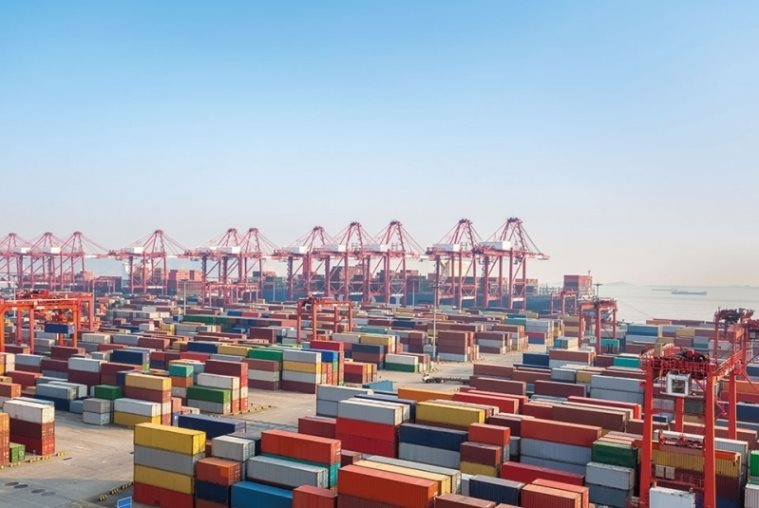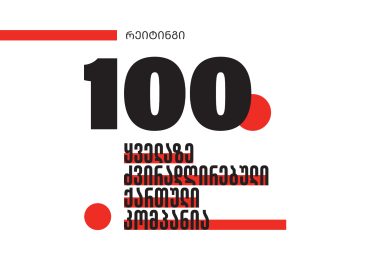The idea of establishing Free Industrial Zones (FIZ) in Georgia began with the previous government, which hoped that these zones would play an important role in the development of the country’s economy and lead to some kind of ‘economic miracle’. In 2009, the Kutaisi and Poti FIZs were established. But by 2011-2012, members of the government openly declared that the FIZs were failed projects. Despite the previous failures, the current government is also pinning its hopes on the success of Free Industrial Zones.
Representatives of both the current and the previous governments have exaggerated expectations regarding the impact of FIZs on the economy. Free industrial Zones are part of the country’s territory and economy; they develop in proportion to the economy. However, having an advantageous tax system is not enough to attract investors. It is crucial to have a stable economic and political environment. Moreover, there are thousands of successful FIZs in the world, including in neighbouring Turkey, which makes competition even tougher.
A Free Industrial Zone is one type of Free Economic Zone. The main attraction of a FIZ is that it offers tax concessions on the territory of Free Industrial Zones. Special economic zones accelerate economic growth. However, before FIZs can provide any tangible impact, they require proper development. FIZs are thriving in developed countries that already have large economies. Special economic zones are particularly successful in China (Hong-Kong, Shanghai) and the Unites Arab Emirates (Dubai), playing major roles in the development of these economies. At the same time, there are many examples of failed FIZs, particularly in developing countries.
The Law of Georgia on Free Industrial Zones was passed in 2007.
A free industrial zone may be established on any territory exceeding 10 hectares, except for protected areas as defined by Georgia legislation. A FIZ can be established at the initiative of the government of Georgia or at the request of a natural or legal person – an organizer. However, the final decision regarding the establishment of a FIZ is made by the government.
A Free Industrial Zone enterprise is exempt from profit tax, property tax and value added tax (VAT). Goods produced within a free industrial zone are also exempt from import tax.
However, when bringing goods from a free industrial zone to another part of Georgia, the import tax is 4%. According to the current legislation, an investor can only lease the enterprise located on the territory of the FIZ, since the investor does not have the legal right of ownership (for the period that the FIZ was created for), since it decreases its interests.
There are several factors that explain why free industrial zones are not as successful in Georgia as the government hoped they would be. The first factor is that Georgia has a liberal taxation system as it is, and granting enterprise licenses and permits is a simple procedure, which means that FIZs aren’t particularly attractive. Moreover, Georgia already has successful free economic zones in the region, including neighbouring Turkey, which makes it harder to compete with. It should be noted that the establishment of the first FIZs coincided with the period following the 2008 August War and the world financial crisis, which turned out to be one of the main factors hindering the development of FIZs in Georgia.
Since the state financial institutions are reluctant to provide any information regarding free industrial zones, our main sources of information are the administrations of the FIZs.
The Poti Free Industrial Zone
The Poti FIZ was established in 2009 on the territory of the former Extensive Development Zone (300 ha) for the period of 99 years. The organizer of the Poti FIZ was the Ras Al Khaimah Investment Authority –RAKIA Georgia Free Industrial Zone.
In 2016, the Arab investor RAKIA passed 85% of the shares of Poti FIZ to the State. The declared reason for transferring the shares to the state was RAKIA’s failure to fulfil its obligations, for which the court imposed a penalty on the company. Instead of paying the penalty, RAKIA decided to give up 85% of its shares.
In September 2017, the Chinese company China Energy Company Limited (CFFC) acquired 75% of the Poti Free Industrial Zone. CFFC is one of largest Chinese conglomerates operating in the energy, finance and trade sectors. The company has since made a $150 million dollar investment in the Poti FIZ and the state has retained a 10% share of the Poti FIZ.
The Kutaisi Free Industrial Zone
The Kutaisi FIZ was established in 2009 for a period of 99 years. It is located on 27 hectares of territory that belong to a former automotive manufacturing plant. Georgian International Holding is the administrator of the Kutaisi FIZ. They tell us that almost one-third of the zone is operational. There are currently37 enterprises operating on the territory of the Kutaisi FIZ, many of which are relatively large companies like Fresh Georgia, which is a subsidiary of an Egyptian company and produces household appliances (gas stoves, electric water boilers, washing machines etc.),and Atlantic Georgia, a company that manufactures electric heaters and water boilers. Fresh Georgia, Atlantic Georgia and the administration of the FIZ have jointly invested nearly₾100 in the zone.
Hualing Kutaisi FIZ
Hualing Kutaisi FIZ was granted the status of Free Industrial Zone in 2015 for the period of 30 years. The FIZ is located on the territory of another former automotive manufacturing plant on 36 hectares of land. The organizer of the Hualing Kutaisi FIZ is a member of the Hualing Group Georgian Huashun International Industrial Investment Group Ltd.
Hualing Kutaisi FIZ operates with a 25% workload. At the present, there are approximately 70 industrial/commercial/service companies registered on the territory of the FIZincluding a wood processing plant, a stone processing plant for commercial construction, a furniture plant, mattresses, metal constructions, filters for construction machinery and a distillation plant for the production of spirits and so on. Soon, a solar panel manufacturing plant is expected to open as well. The majority of the companies operating on the Hualing Kutaisi FIZ are foreign (Chinese, Egyptian, Azeri, and Spanish).
Director of the Hualing Kutaisi FIZ, Soso Nobladze, told us that for the present moment, approximately $10 million has been invested in the FIZ.
Nobladze notes that FIZs have a certain impact on investment and exports. However, they cannot generate an economic boom. One could say that the development of FIZs is consistent with the development of the economy. As such, the political and economic environment in the country has a direct impact on the development of the FIZs.
Nobladze believes that despite the appealing conditions, “the FIZ is not quite a liberal paradise for investors, since the tax system in Georgia is liberal already. At the same time he notes, “State programs often compete with FIZs by offering companies various benefits.”
Nobladze believes that the hindering factors are buried within the country’s legislation. For instance, imposing a 4% import tax when bringing goods from a free industrial zone to another territory of Georgia.
Tbilisi Technological Park FIZ
The Tbilisi Technological Park FIZ was established in October 2015 for the period of 49 years. It is situated on 17 hectares of agricultural land in the District of Gldani. The administrator of the Tbilisi FIZ is the Georgian Technology Park, a subsidiary of the leading crypto-currency, bitcoin (block chain) company BitFury. The land plot, where the free industrial zone is located was purchased from the state in May 2015 by the Georgian Technology Park LLC for a token price of one lari, a few months before it was granted the status of a free industrial zone. The creation of a data processing center with a minimum investment of $11.1 million was set as an investment obligation for transferring the land.
At the end of 2015, BitFury opened a 40 MW data center on the territory of the Tbilisi Free Industrial Zone.
Since the data center is located on the territory of the FIZ, it is exempt from VAT. Consequently, the rate for electricity consumption is also exempt from VAT, which results in a large profit for the company, as the electricity bill makes up about 90% of the cost of operating the data center.
TheTbilisi Technological Park FIZ has been operating for two years now. The administration of the of the FIZ, as well as the government of Georgia had very high expectations and hoped that the new FIZ would attract investors and be one of the more successful projects. Despite these expectations, no other investor has shown much interest thus far.
The administration of the Tbilisi FIZ told us that only 20% of the territory is being utilized at this point and that they employ approximately 60 people. They note that several foreign companies have shown interest in the zone and that negotiations are already underway.
Kulevi Free Industrial Zone
In September 2012, the government of Georgia decided to establish yet another free industrial zone in the Khobi municipality in the village of Kulevi. SOCAR Georgia Investments was granted the power of the organizer. Initially the FIZ was expected to launch in September 2014.However, the government postponed the launch of the new FIZ setting the new date for 2016. Later it was delayed again until September 2017.
Information regarding the turnover volume and investments carried out on the territory is a state secret. Therefore we cannot estimate the impact of the FIZ on the national economy. On the other hand, we can evaluate the progress and success of the free industrial zones in Georgia based on the information provided by the administrations of the FIZs. The free industrial zones located in Georgia operate with an approximate 20-25% workload. In the case of the Poti FIZ, the organizers failed to fulfil their obligations and had to return the controlling interests to the state. There are two large companies operating on the territory of the Kutaisi FIZ, which was established in 2009. The Tbilisi FIZ has been operating for two years now, but the only investor that has come to the table thus far is BitFury. The Kulevi FIZ is a clear example of how difficult it is not just to develop, but to also launch a FIZ. As for the Hualing Kutaisi FIZ, compared to the others, this FIZ has been more or less able to develop. Nevertheless, its administration told us about the factors hindering the development of free industrial zones and also admitted that FIZs cannot play a major overall role in the development of the country’s economy.















